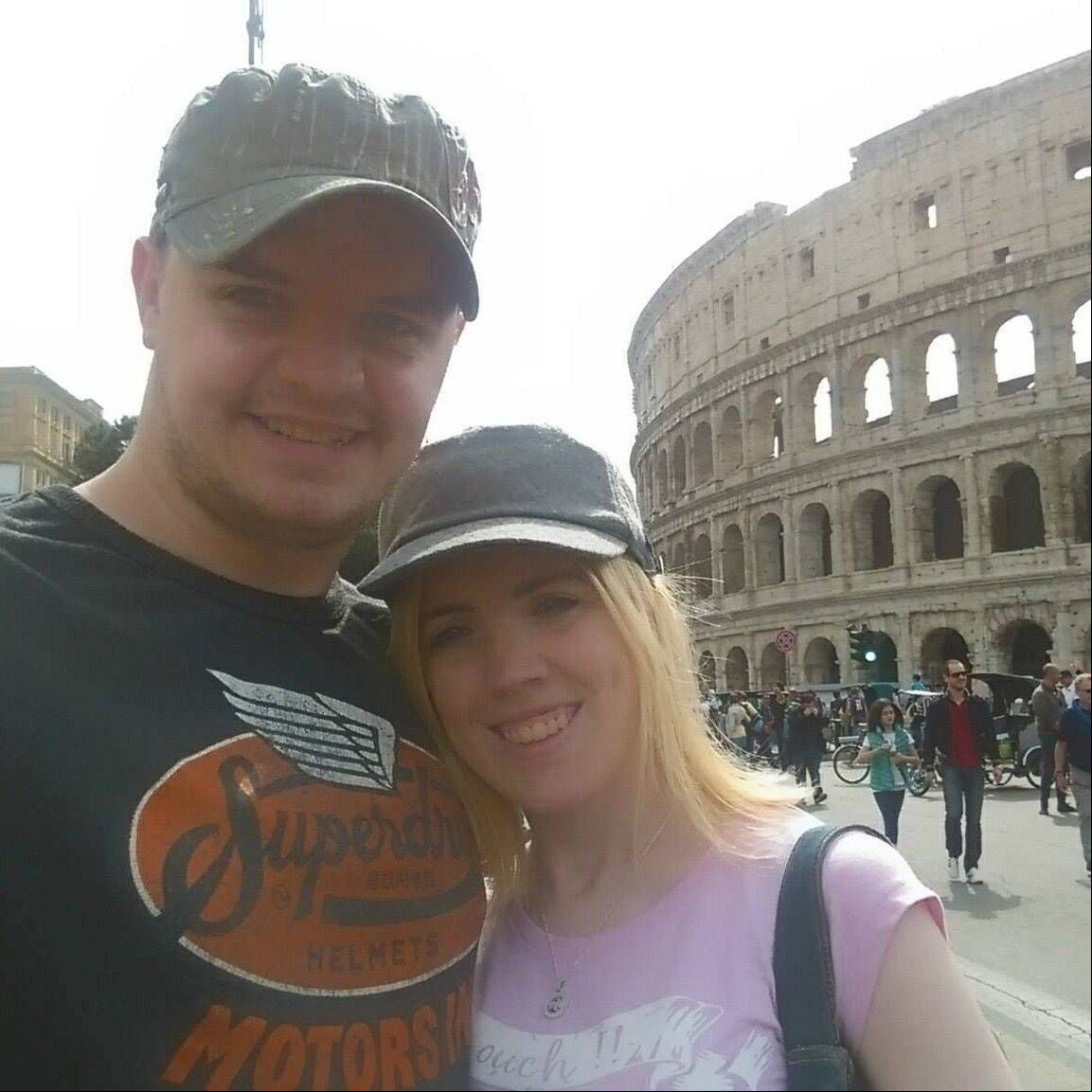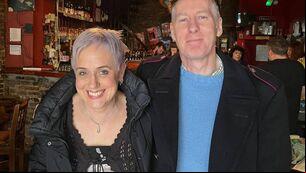CF is not the end up, if you give up, what kind of life will you be living?

SHE takes 30 tablets a day and has to use a nebuliser twice a day — but that doesn’t stop Lorna Roche from leading a full life.
This 29-year-old woman from Midleton was diagnosed with cystic fibrosis (CF) at three months old and it would have been easy for her to wrap herself in cotton wool.
But instead, she chooses to travel the world as much as she can.
Her journeys have included a trip to the Arctic Circle, where she saw the Northern Lights, and she is now planning to go to the bright lights of Las Vegas with her boyfriend, Stuart, for her 30th birthday.
A patient ambassador for Cystic Fibrosis Ireland’s One in 1,000 campaign, which seeks to recruit 1,000 women to take part in the VHI Women’s mini-marathon in June on behalf of the charity, Lorna leads as normal — and exciting — a life as she can.
CF, an inherited chronic disease, clogs the lungs and can lead to life-threatening lung infections. It also obstructs the pancreas and stops natural enzymes from helping the body break down and absorb food.
But Lorna, who works as a clerical officer at the Mercy Hospital in Cork, and studied management and marketing at CIT, doesn’t let her illness get her down.
“When I eat, I have to take artificial digestive enzymes to digest my food,” she explains.
“But I never felt any different to anyone else.
“I was very lucky at school. Nobody took any notice of me taking enzymes when eating.
“I’ve had CF all my life. It doesn’t really restrict me too much.”
At the moment, Lorna’s lung function is just 40%. “I have to do airway clearance as well as using a nebuliser,” she says.
“Doing the clearance involves breathing exercises that helps me move the phlegm in my lungs and cough it up.
“It works. I was taught how to do it when I was young.”

CF is a progressive disease. “Some people can be very sick with it, says Lorna. “I’m lucky in that I didn’t really start being hospitalised until I was 21. Since then, I’ve been hospitalised two or three times a year with chest infections.
“Right now, I haven’t been hospitalised for nearly a year. If I have a very bad chest infection that won’t clear on its own, I go to my CF team. One of the nurses will insert an intravenous line of medicine, maybe just for a few hours, while they give me a refresher course on what to do. They teach me how to draw up the drugs and inject myself.”
Lorna takes a drug called Kalydeco twice a day. “It treats the underlying cause of CF,” she says. “The reason I can take it is because of the mutation of one of my genes. It only works on people that have that mutation.
“I have been on it for about four years. For me, its greatest benefit is that it seems to have halted the decline in my lung function. That’s massive.
“My weight has increased as well. Because people with CF can’t digest food properly, weight gain can be a problem.”
For Lorna, Kalydeco “is fantastic” and she adds: “There aren’t many of us able to take it whereas the drug, Orkambi, treats the most common mutation that people with CF in Ireland have.”
However, Orkambi is very expensive and to date, the HSE has said it can’t afford to pay for it.
“There are people really suffering as a result. The Orkambi trials went really well. Hopefully, it will be made available. It really is a life-changer.”
Lorna takes a lot of exercise, walking her rescue dog, Koby — a cross between a black Labrador and a Springer — as well as swimming. Her parents gave her a present of a treill on which she works out, following an exercise plan that was devised by a fellow CF patient and fitness trainer, Ben Mudge, who is based in Northern Ireland. Lorna describes him as her hero.
Something of a CF heroine herself, Lorna may walk the VHI Women’s mini marathon in Dublin. For the last three years, she has walked the Evening Echo mini marathon with her mother. “I might jog it this year, inhaler in hand.”
Lorna’s philosophy on life is to “live with CF as best I can”.
She explains: “There’s no point in just sitting down and giving up because what kind of a life are you going to have then?”
Her last trip in 2016 was to Thailand. When she was a student, she used to travel during the summer months.
“The Arctic Circle was amazing,” enthuses Lorna. “I would encourage everybody to go there. It’s absolutely freezing but the air was so clear that it was nearly easier for me to breathe there.
“My CF team didn’t freak out altogether when I said I was going there. With a group of seven, we went to Kiruna where we saw the incredible Northern Lights.
“Kiruna is 18 hours on a train from Stockholm. It was definitely the best experience of my life.
“I’ve been to America and Canada, a trip I took over six weeks. My CF team nearly freaked out a small bit over that, wondering how I was going to take care of myself. I was able to. I got on great.
“I went to lots of places in America with my friend, Calum. I saw the Grand Canyon. And I’ve been around Europe.”
Also on Lorna’s wish list are Egypt and South Africa. “I absolutely love travelling,” she adds. “Travelling all the time isn’t feasible, especially when you have CF. But it’s not too bad. I come home and work and have another trip to look forward to.”
This summer, Lorna will be staying put. “Myself and Stuart are trying to save up for a house,” she says, “so he has warned me that there’ll be no trip this year.”
Lorna emphasises that a diagnosis of CF “isn’t the end of the world”.
“We can go on to live perfectly normal lives; work, travel, get married and have children. The advances in medicine are amazing.”
While Stuart doesn’t have the CF gene, if the couple was to have a child, “it would definitely be a carrier but that doesn’t affect you at all,” she says.
“Neither of my parents have CF but they both carry the gene for it. My sister doesn’t have CF.”
Lorna’s dream is “to see more of the world, to hopefully get married, have children some day, and be healthy enough to grow old happily.”
Cystic Fibrosis Awareness Day is on April 13.
www.cfireland.ie.







 App?
App?


